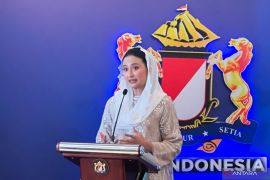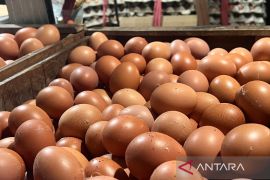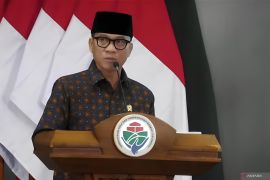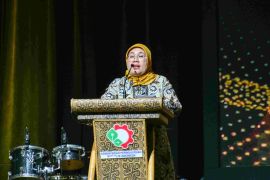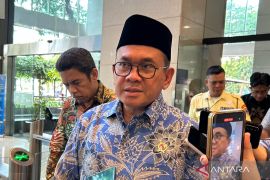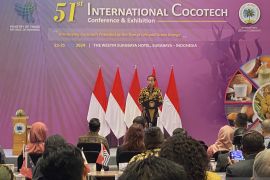Oleh ANTARA News Jember, E Java (Antara) - Chief Economic Minister Hatta Rajasa emphasized the government's intention to stop the exportation of raw minerals next year because it would disadvantage the state. "The exportation of raw materials must be stopped next year," the minister said on the sidelines of his working visit here over the weekend. Based on Law No. 4/2009 on Mineral and Coal stipulates that mining firms are not allowed to export raw materials beginning January 12, 2014. The firms can export the materials after they have first refined processed them. "Beginning January 12, 2014, we cannot export raw mineral ores," Hatta, who is also general chairman of the National Mandate Party (PAN) said. Every year, Indonesia exports 40 million tons bauxite to China while if it is processed at home its price will double. "If Indonesia wants to become advanced in the field of industry, it should not export its raw materials," Hatta said. Although some had rejected the plan, Hatta firmly said that all parties should follow the law. The sales of processed goods would increase state's revenues. Therefore, mining companies in Indonesia must have smelters to process their raw minerals such as bauxite, sand quarts, gold, copper and others. Energy and Mineral Resources Jero Wacik said meanwhile the government was set to implement the law banning export of mineral ores starting January next year, but aware of the negative impact on broader national interest, it indicated a compromise in the implementation. The Law No. 4 of 2009, requires mining companies to process their mineral ores in the country before being exported. Under the law mining companies have to build their own smelters or have their mineral ores processed in the refining facility of other company. "Nine factions at the House of Representatives have asked the government to implement the law . We stick to that. The government will implement the law," Energy and Mineral resource Minister Jero Wacik said here on Tuesday. Wacik said it is difficult for the government to issue a regulation in lieu of the law to avoid the negative impact of the law. Wacik said a number of mining companies are asking for exception from having to comply with law for a number of reasons, citing negative impact of the law implementation. "We are studying what we can do. We will continue to go ahead with the law implementtation, but we have to consider broader national interest," Wacik said. Wacik said strict implementation of the law may result in mass lay-off when a company was sanctioned for failing to comply with the law. "This needs to be seriously addressed . How we should carry out a policy to protect other important interest without breaking the law. Something has to be sacrificed," he said. He said the government still has time to find a way to cope with the negative impact of the law. A number of major mining companies like PT Freeport Indonesia and PT Newmont Nusa Tenggara, both local units of US mining giants operating large copper mines in the country, have asked the government to give them a number of more years to comply with the regulation. The two companies were already given time since the law was announced in 2009 , but they have not made attempt to build a smelter or refining facility for their copper concentrate. An official of copper mining company PTNNT said it is not feasible for a copper mining company like PTNNT to build a smelter as the facility would need larger supply of copper concentrate. Separately, Hatta Rajasa also said the government would implement the law. The government will issue regulation to implement the law, Hatta said, adding the regulation is being discussed between related government agencies. Based on the country's Master Plan for Acceleration and Expansion of Indonesia's Economic Development (MP3EI), carried out in the 2011-2013, there have been a number of evaluations, particularly in the infrastructure sector. "Infrastructure development this year reached Rp500 trillion, consisting of Rp250 trillion from the state budget, Rp100 trillion from regional budget and Rp150 trillion from the private sector," Hatta said. (*)
Raw Mineral Export Must Stop: Minister
Minggu, 29 Desember 2013 11:39 WIB


